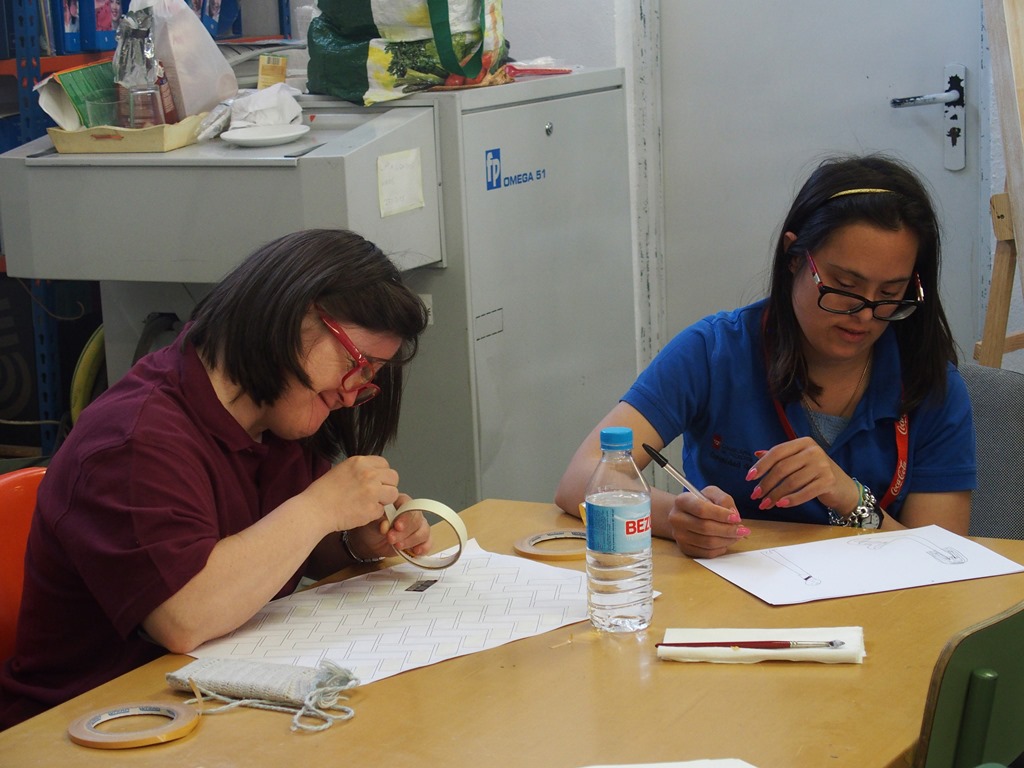Visiting Madrid – the capital of the social economy in Europe

‘Reducing inequalities through a just economy’ is one of Social Platform’s key strategic actions for the period 2017-2020. In order to learn about the social economy and social enterprises, a delegation of Social Platform staff, members and their national members visited the capital of Spain from 22-24 May.
According to Social Economy Europe, there are more than 2 million social economy enterprises and organisations in Europe, making up 10% of Europe’s businesses. While the economy has suffered considerably since the financial crisis, statistics show that the social economy sector has not only been stable in recent years, but actually experienced significant employment growth: from 11 million jobs in 2002/2003 to 14.5 million jobs in 2009/2010.
In Spain, social economy enterprises are very advanced. According to the Spanish Confederation of Social Economy Enterprises (CEPES), in 2016 there were 43,059 social economy entities, providing work for nearly 21.5 million people. During our time in Madrid not only did we have the opportunity to visit some of these social economy enterprises and organisations, but we also witnessed the signing of the Madrid Declaration.
During our first visit to the Carmen Pardo-Valcarce Foundation we had the chance to visit different occupational centres for people with intellectual disabilities. The foundation aims to help these people break the circle of isolation and exclusion, promote their independence and autonomy, and change societal misperceptions about their abilities. It is completely self-sustainable and has different strands of activities, including a school for about 200 pupils with intellectual disabilities, and occupational centres where they learn different skills to enable them to make the switch to the regular employment market.
We also visited Caritas Madrid to learn about two social economy enterprises employing people in vulnerable situations who would otherwise face significant challenges in entering the regular labour market; Movimento por la Paz, which is an organisation working in the field of migration and labour market integration for persons in vulnerable situations; ILUNION, which is a unique enterprise model putting the employment of people with disabilities at the core of its activities; and the Confederation of Spanish Housing and Renewal Cooperatives (CONCOVI), which is the largest official representative of the social economy in the Spanish real estate sector.
On the second day we attended the conference ‘Madrid, capital of the European Social Economy’ organised by the Spanish Ministry of Employment and Social Affairs, Social Economy Europe and CEPES. One of the key moments was the adoption of the Madrid Declaration, which calls on the European Commission to include a European Action Plan for social economy in its Work Programme 2018 and to strengthen the role of the social economy in the European Pillar of Social Rights and in the ongoing debate on the future of Europe. The Declaration demonstrates the ongoing commitment of a growing number of EU Member States to promote the development of the social economy, following the Luxembourg Declaration of December 2015 and the Bratislava Declaration of December 2016.
In the evening of the second day the delegation had the opportunity to meet with Spanish national members of Social Platform members. It was not only a great occasion for us to learn about different projects taking place at national level, but also for Spanish members working in different fields to network and establish contacts for future cooperation.
I think I speak on behalf of all participants when I say that we spent three very intense but rewarding days in Madrid. We visited strong social economy actors showing the potential behind the so-called third sector and reinforcing the importance of investing in people.
Social Platform’s work on the promotion of the social economy and social enterprises will continue throughout the year with the collection of good practices.
A full meeting report, pictures and videos about the study visit will be available on our webpage soon!













































